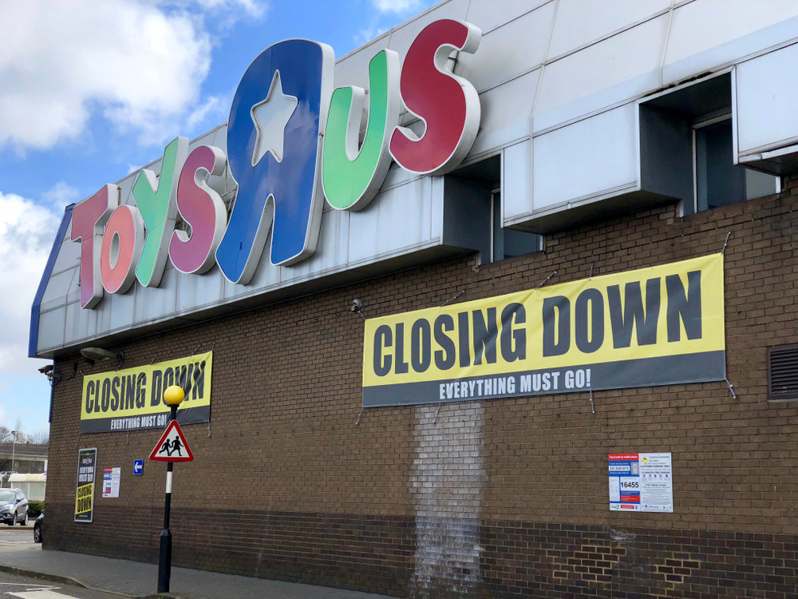BHS filed for administration on Monday after a long battle to find a buyer for the struggling high-street institution. 11,000 people face job losses as yet another household name enters the retail graveyard; with fashion house Austin Reed following suit on BHS’s old-fashioned coattails. We’ve seen the likes of Woolworths, Blockbuster, JJB, Comet, HMV and many others close their doors or go into administration in the last decade. Why have these businesses failed to adapt to our society of change?
We’re in a world driven by change, to say social media or the rise of online networks has impacted society is a hollow statement. The internet has created a universe of its own, where if your phone battery dies you feel like an off-the-grid caveman forced to survive on your instincts alone. It is the single most influential medium of the last century. And the balance of power lies in the hands of the public not the private sector.
Societal values have become a force of empowerment, where your gender is no longer defined by your physical manifestation and where petitions and signatories can uphold governments and demand change at the click of a button. Where historically, cultural crimes and corruption had been grossly overlooked and people in power that looked the other way have been exposed and rooted out. Think Black Lives Matter that started in America, the repeated child sex abuse spanning five decades by some of this country’s iconic celebrities and most recently the Hillsborough tragedy, marred in police corruption and cover-ups that lasted 27 years. Scandal and corruption can no longer hide in the shadows. From the most shocking and truly disgusting judicial failings we have witnessed in the past century, society refuses to stand at the wayside no longer. Even down to everyday injustices such as playground bullies and neglecting charitable acts, society is striving to shape a better world. Where your moral compass weighs heavier than anything of hedonistic value.

So as a business in today’s age of change and morality, how do you prepare and stake your claim in the modern world?
Listen to trends as they happen
BHS is a prime example of failing to follow a turning-point trend. Online shopping exploded ten years ago and now a not-as-much-as-you’d-think proportion of all retail sales are made online with ONS reporting e-commerce accounts for 14% of sales. Yet analysts have criticised how painfully slow BHS were to adopt online shopping, with their website still a wounded appendage of the falling giant. Businesses can learn from BHS’s mistakes and it is fundamental now more than ever to stay not only aware but responsive to change at the least.
Anticipate change
For your business to thrive you should strive to be the makers of change, like Google who employ forward-thinkers and include ‘the future’, innovation and insight across most job descriptions and departments. Depending on your businesses size you could consider employing someone or even establish a department dedicated to strategy, who can anticipate trends and develop insight. Holding onto traditions could cost you your business. Take the golf industry, with declining membership numbers and dire interest levels, the sport is facing a huge challenge to modernise and adapt before it’s too late.

Do not resist change
As mentioned previously societal norms are constantly evolving, and the gender neutral movement is gaining traction. You no longer should have to label yourself by your gender or sexuality. A small example of how companies can respond to this is to make gender tick boxes an optional data requirement for customer sign-ups, records and surveys etc.
Actively pursue relevance and engagement
If there’s one word, one business buzzword that encompasses the outlook of modern-day marketeers it’s ENGAGEMENT. “How can we engage more customers on Twitter?”, “how can we raise engagement with our website?” “How can we encourage engagement with our products?”.
Relevance, intrigue, reality.
All these things will help you engage with the people that matter most to your business. Add real-life elements to the stories you tell, from your ads to ratings and reviews. Companies that have adopted apps like Vine and Snapchat to interact and engage with people have been highly successful. It’s simply not enough to run plain TV ads or billboard campaigns any more. With on-demand services and catch-up streaming of programmes becoming a natural way of watching TV, people are skipping through the ads and fast-forwarding through the interruptions.
Too many businesses are opting for a 'business as usual' approach by ignoring change, instead of embracing and pursuing better practice. Don't get left behind like BHS, because a change is gonna come.
Feature image credit: photocritical/Shutterstock


